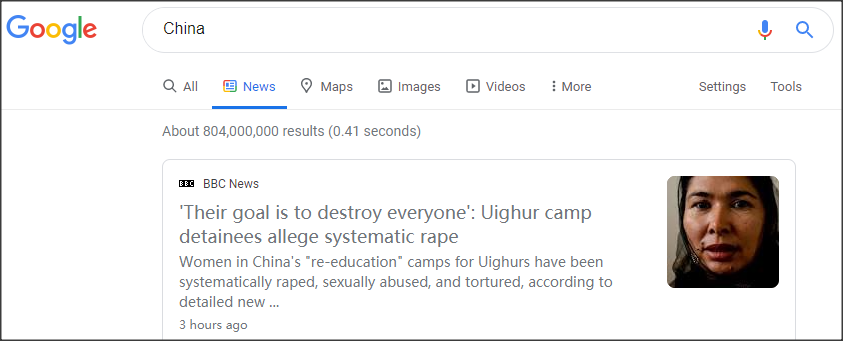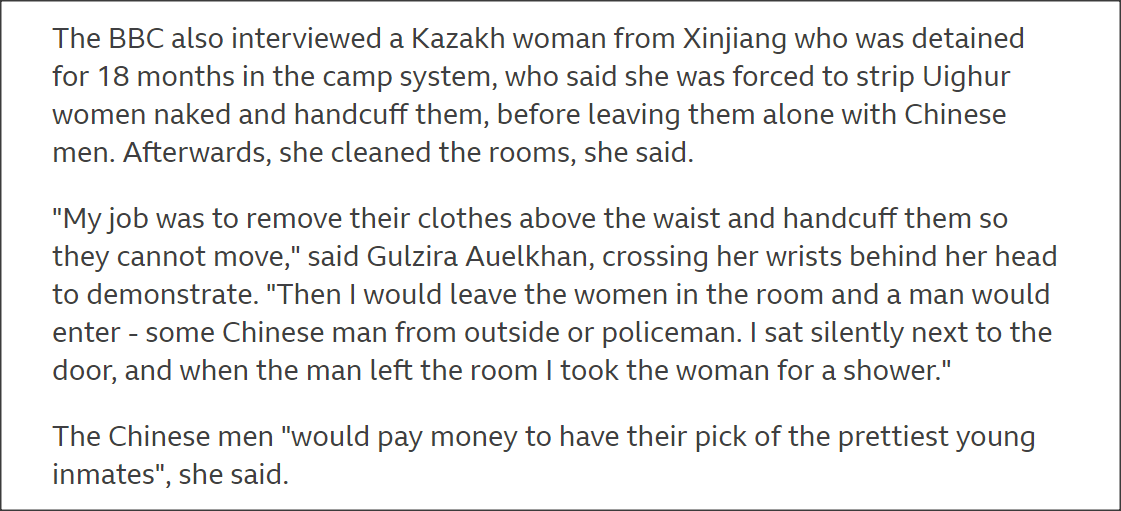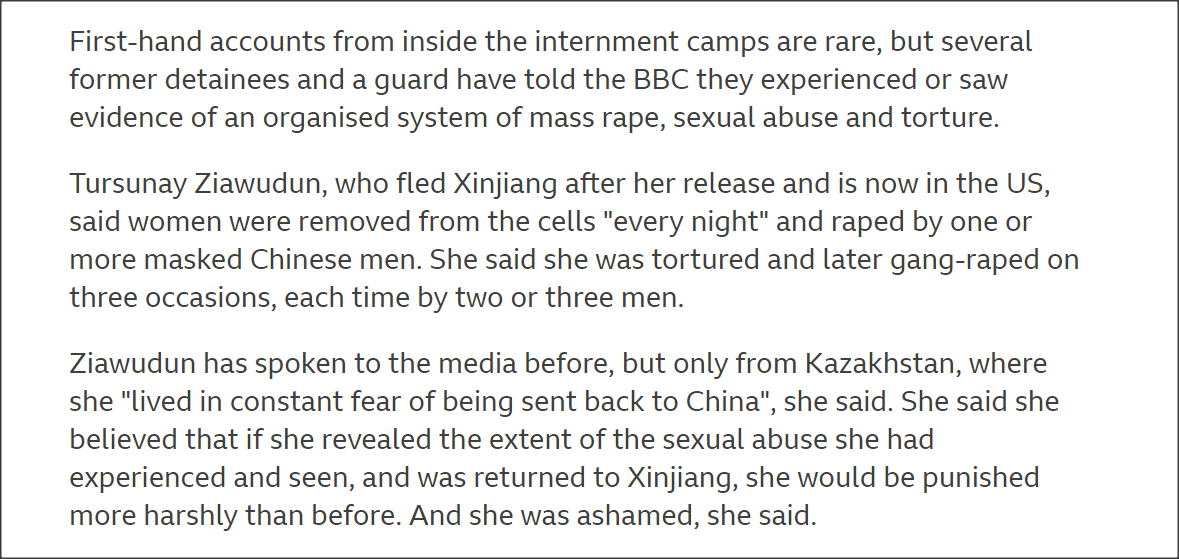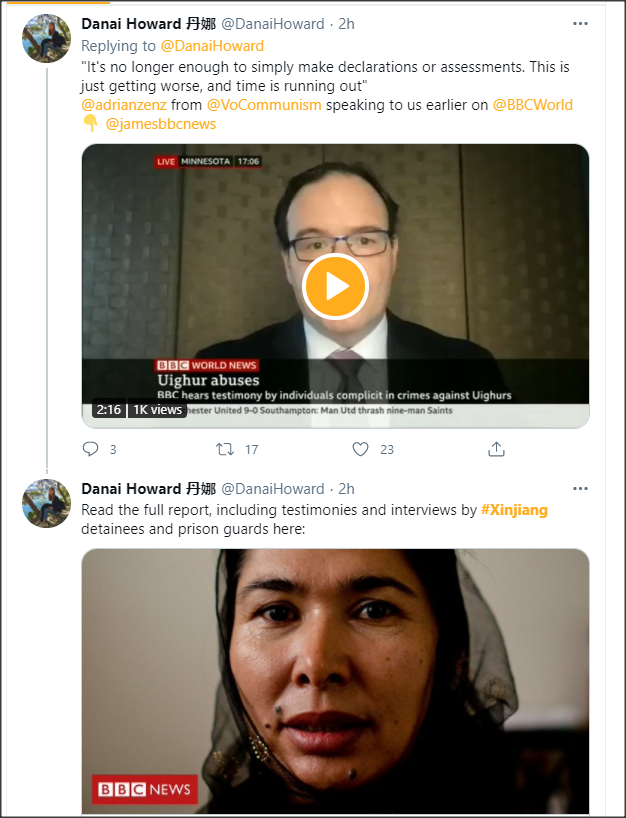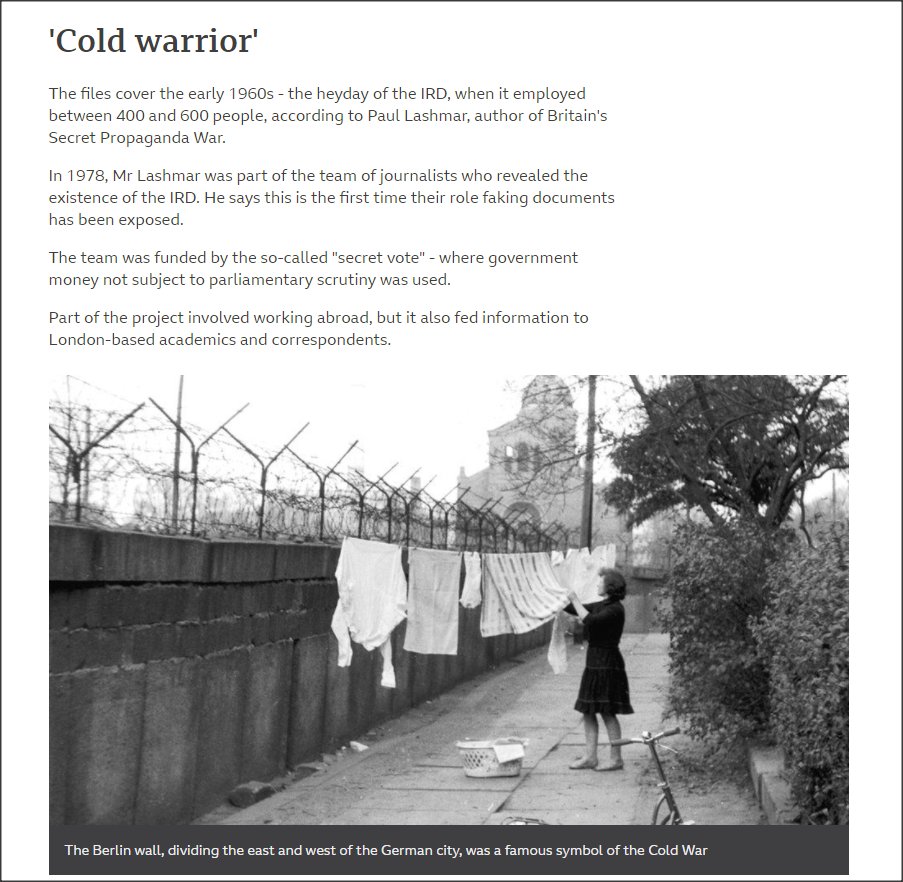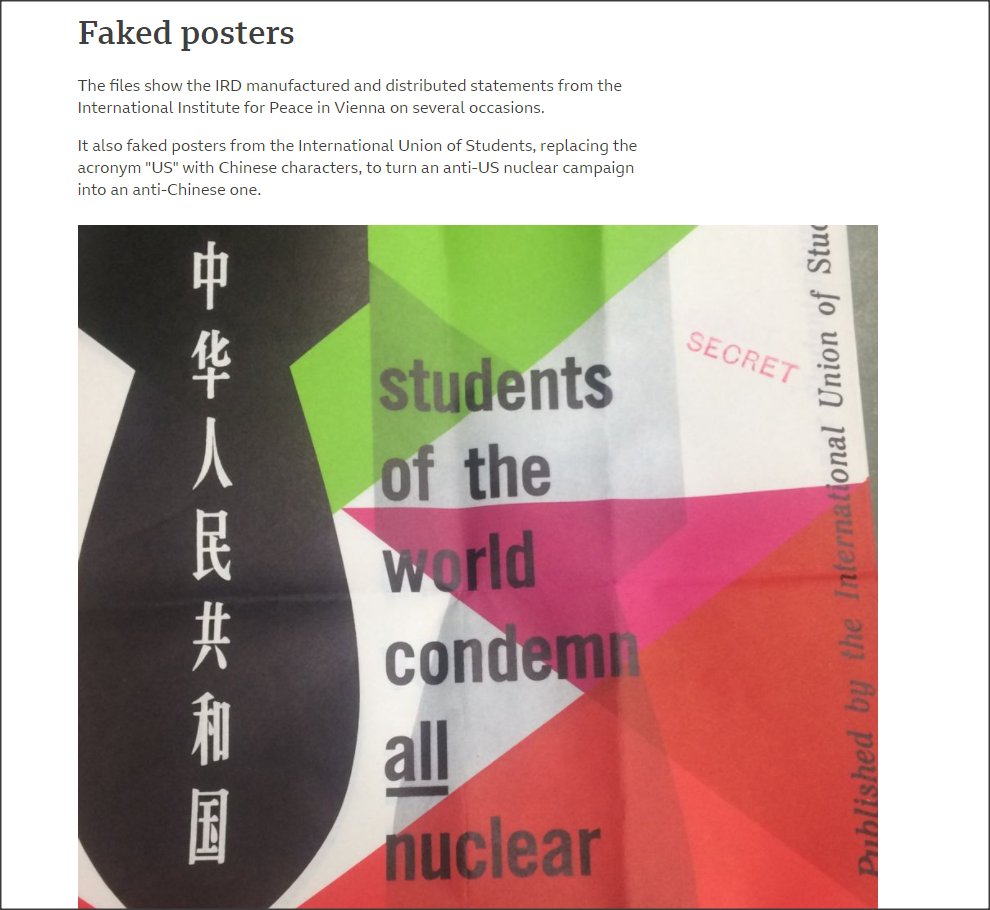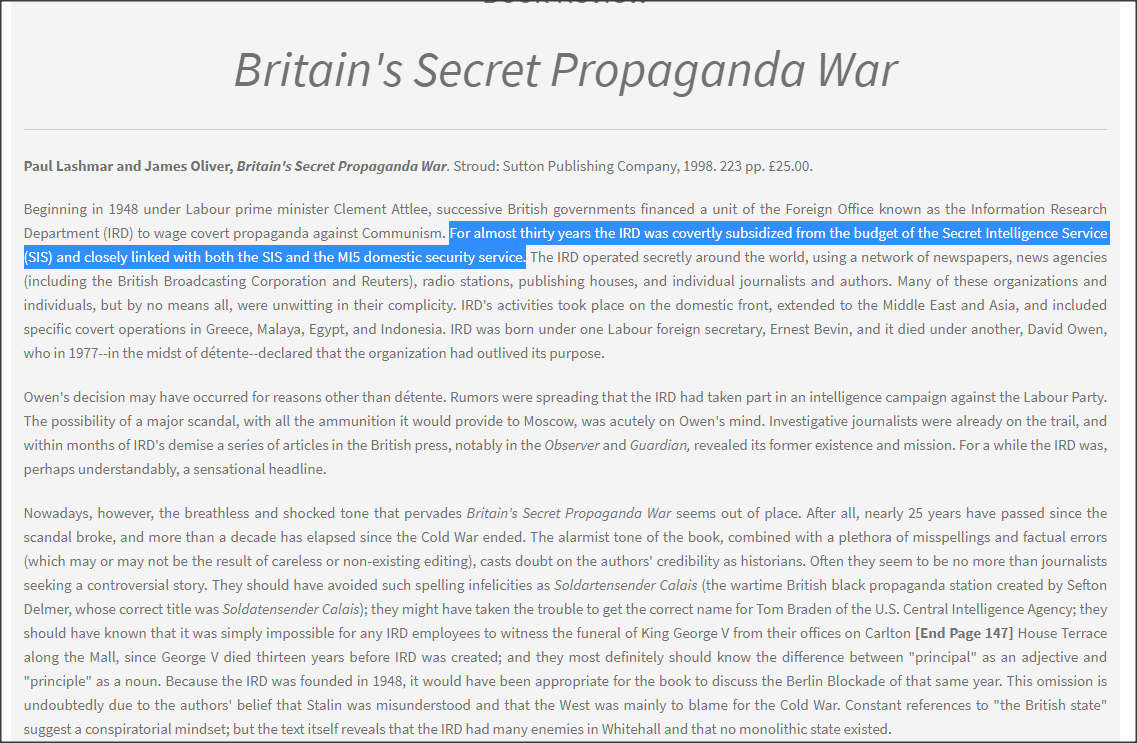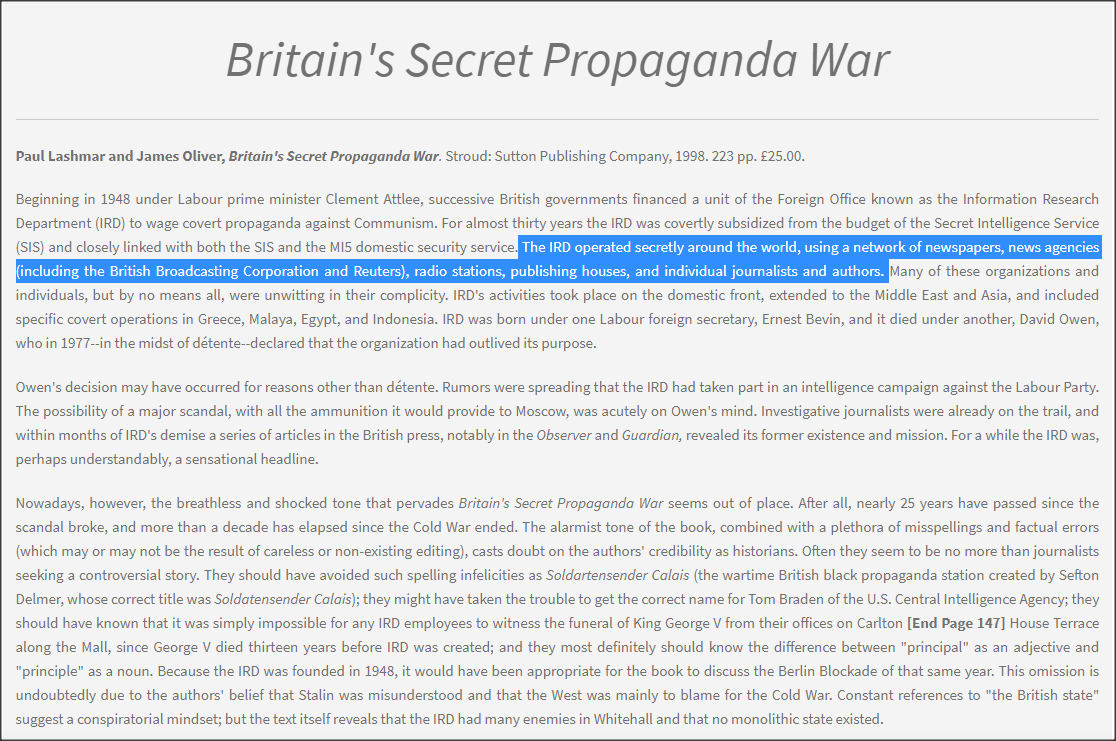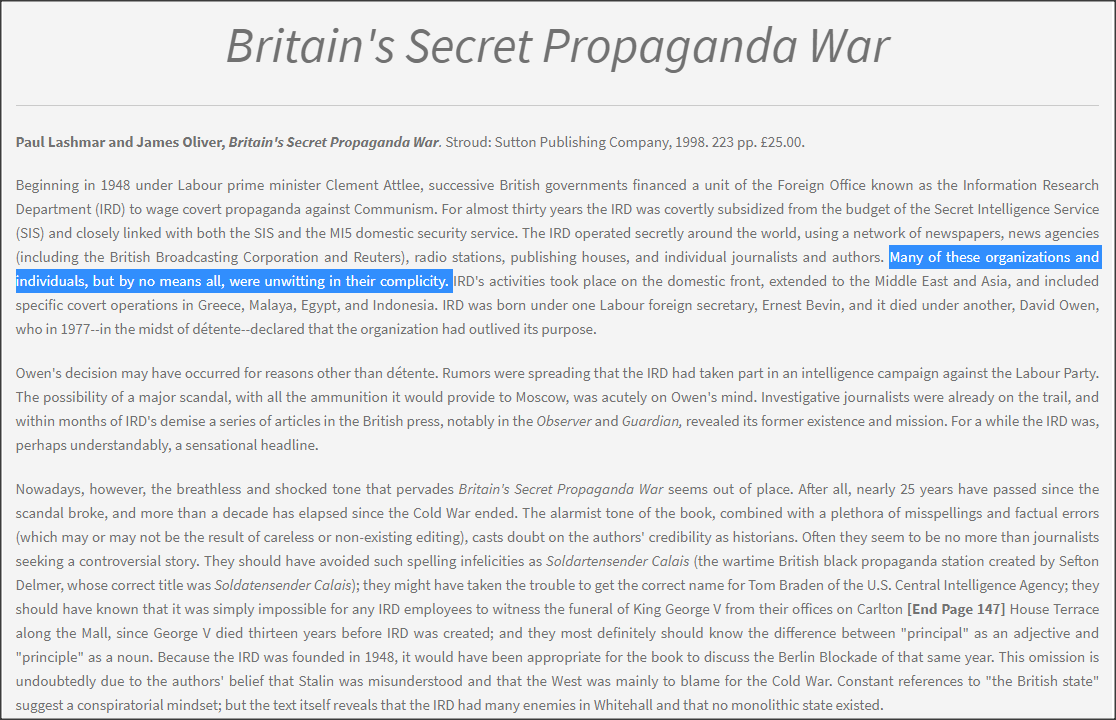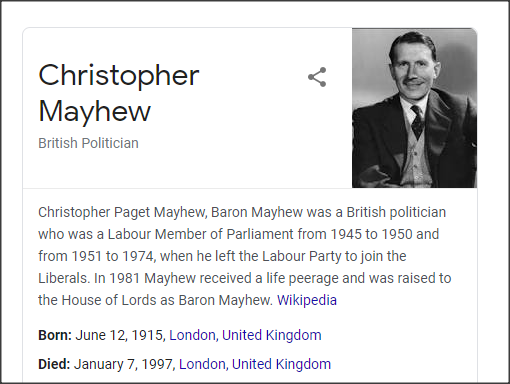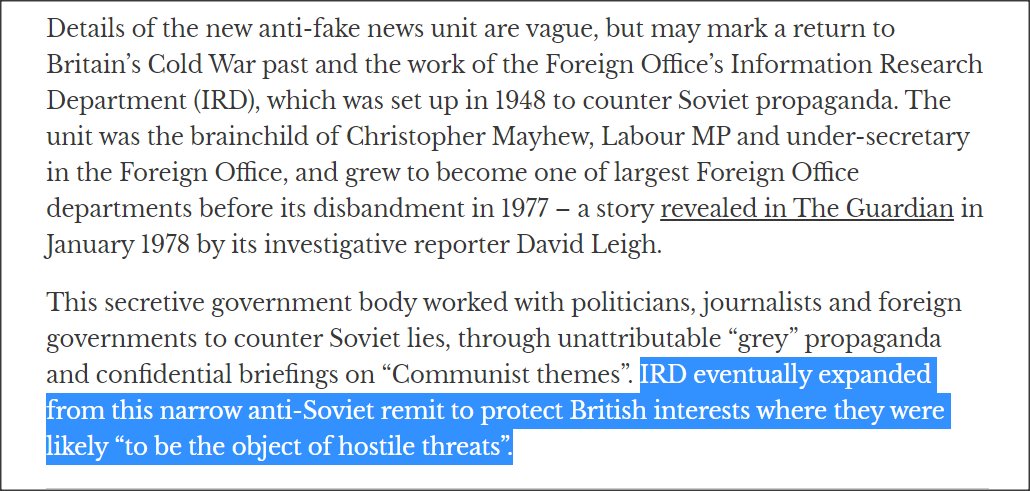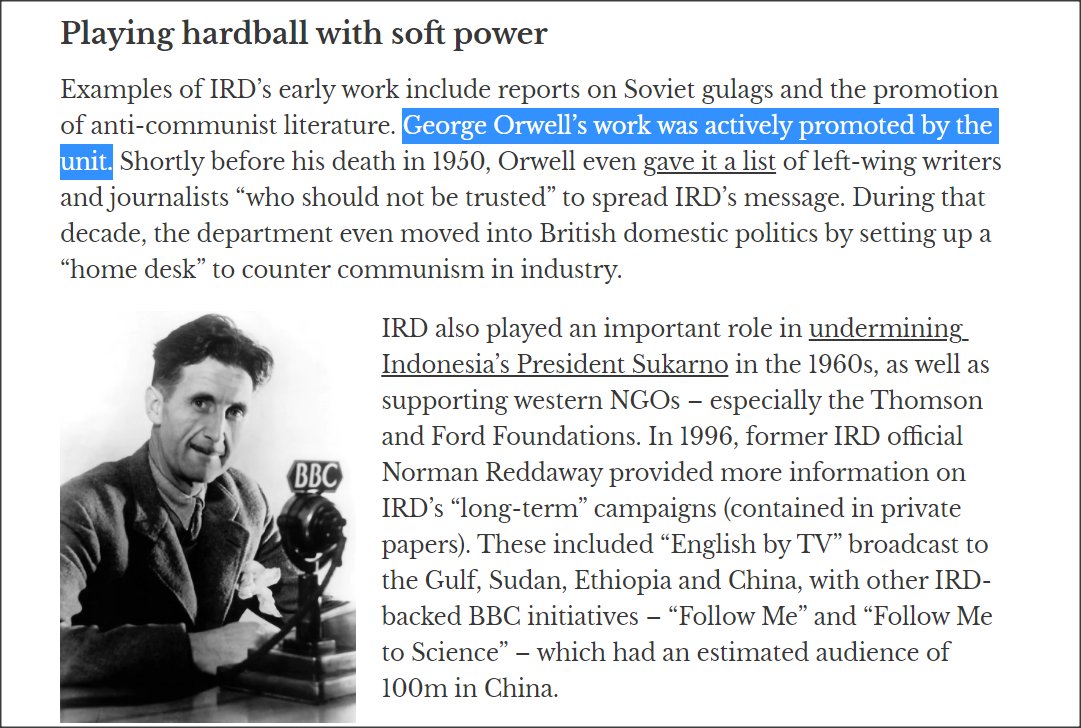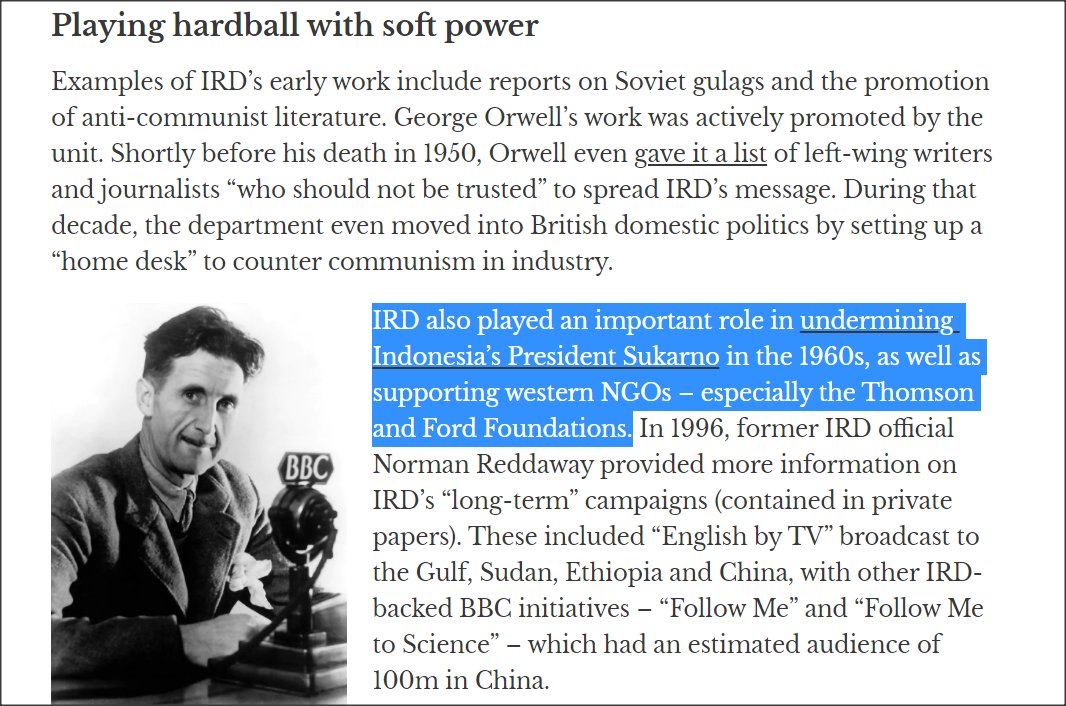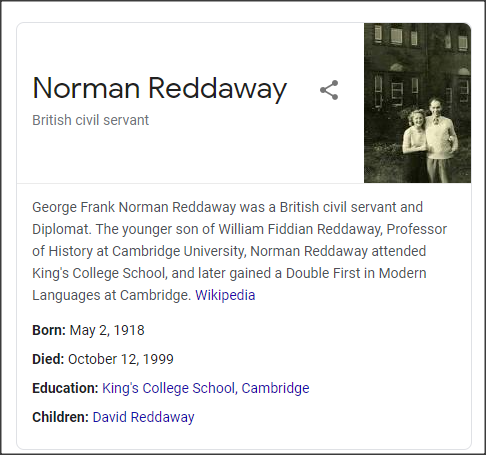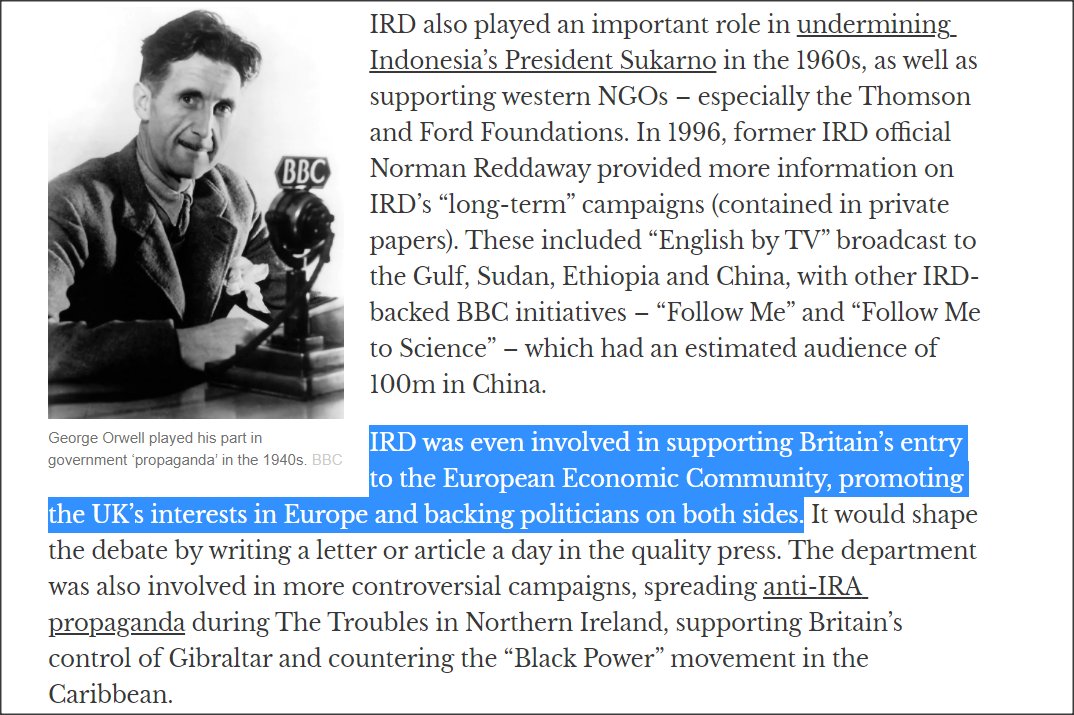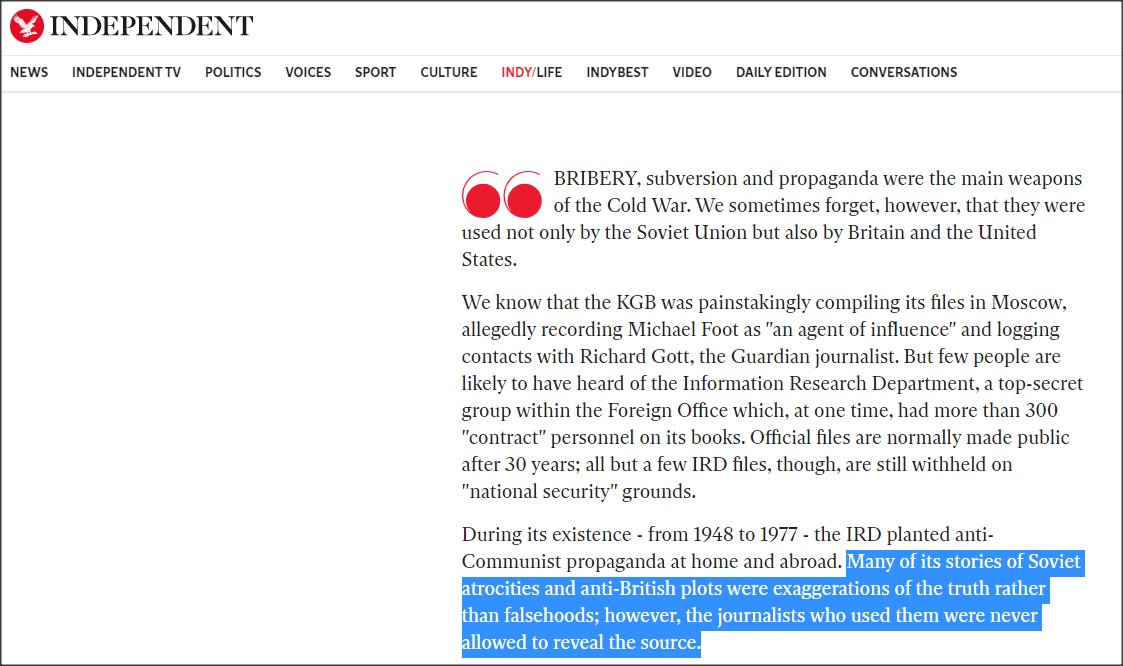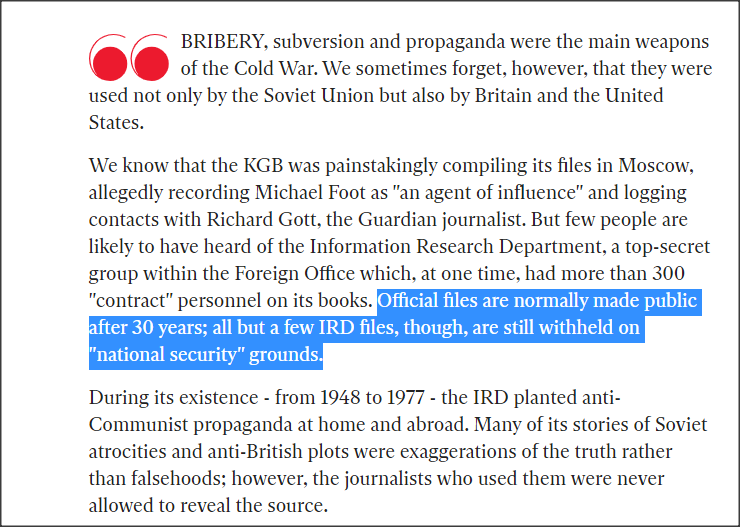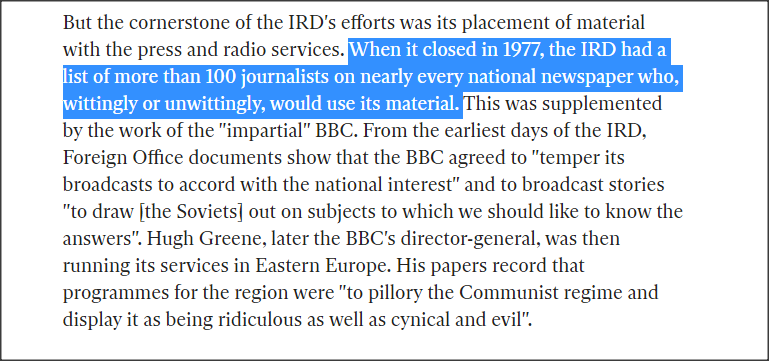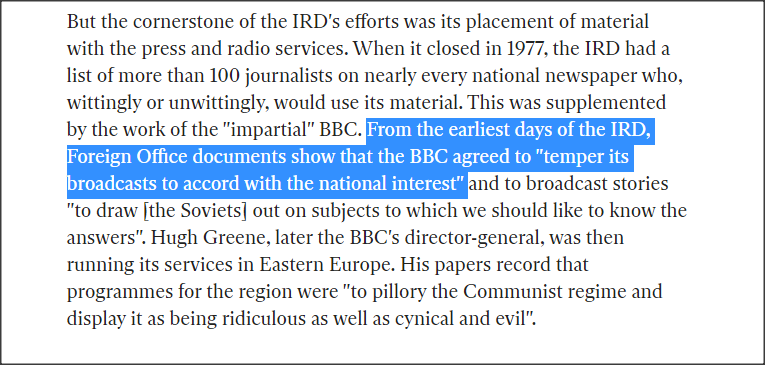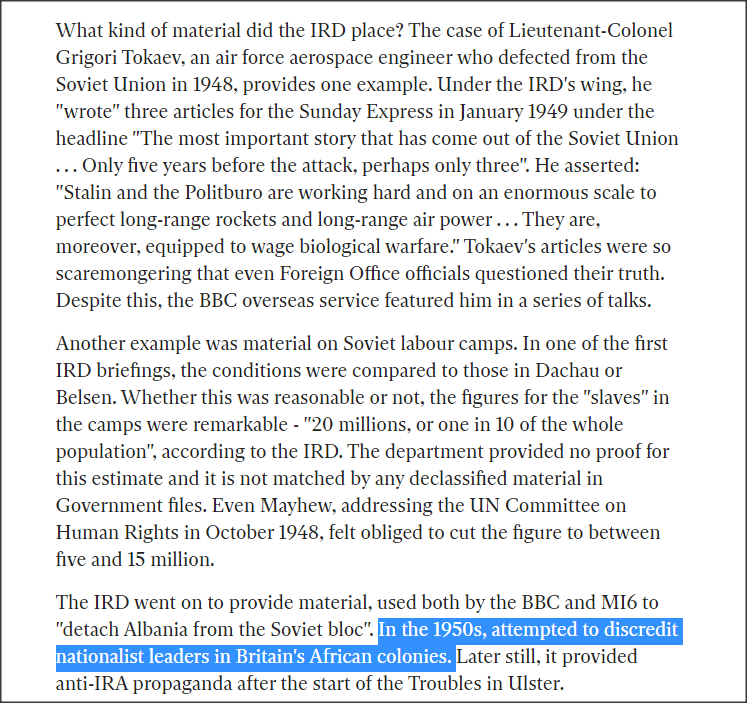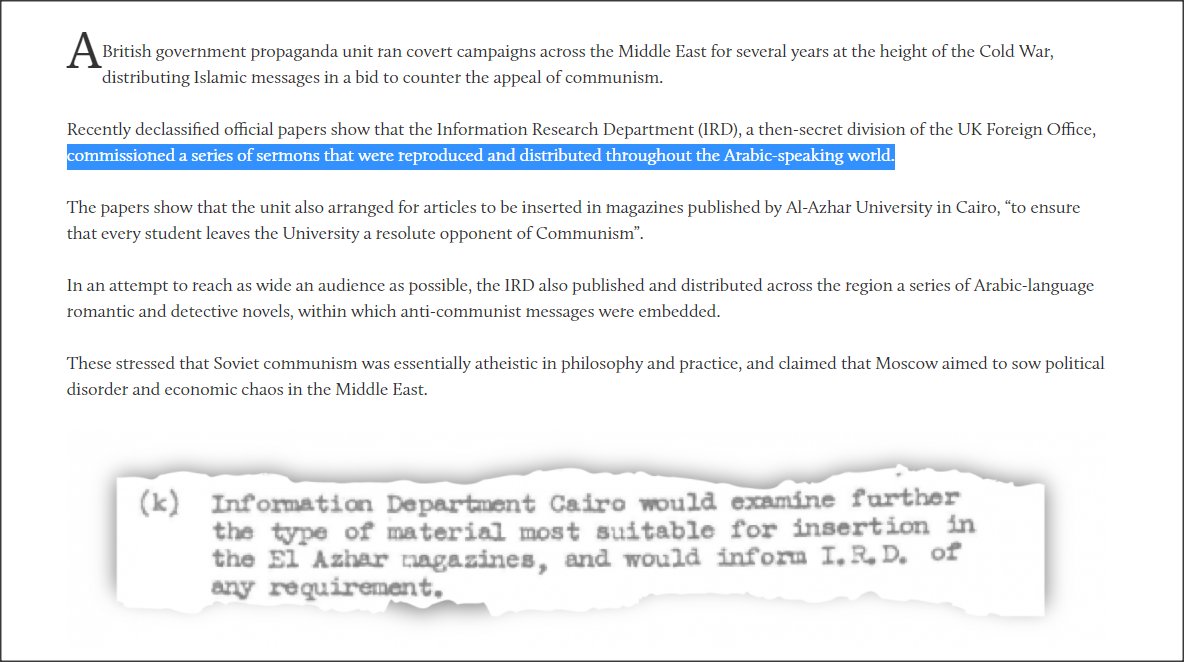Not endorsing Beijing's Xinjiang security policy, but the BBC's reports on such preposterous claims are highly irresponsible.
They read like intentional disinformation.
They read like intentional disinformation.
History will probably give us the answers.
ICYMI,
The Information Research Department (IRD) during the Cold War employed a vast array of nasty tactics to trash China,
https://www.bbc.com/news/uk-politics-47571253
The Information Research Department (IRD) during the Cold War employed a vast array of nasty tactics to trash China,
https://www.bbc.com/news/uk-politics-47571253
For almost thirty years the IRD was covertly subsidized from the budget of the Secret Intelligence Service (SIS) and closely linked with both the SIS (MI6) and the MI5 domestic security service.
https://muse.jhu.edu/article/9164/pdf
https://muse.jhu.edu/article/9164/pdf
The IRD operated secretly around the world, using a network of newspapers, news agencies (including the @BBC and Reuters), radio stations, publishing houses, and individual journalists and authors.
Many of these organizations and individuals, but by no means all, were unwitting in their complicity.
The IRD was the brainchild of Christopher Mayhew, Labour MP and under-secretary in the Foreign Office, and grew to become one of largest Foreign Office departments before its disbandment in 1977.
https://theconversation.com/british-governments-new-anti-fake-news-unit-has-been-tried-before-and-it-got-out-of-hand-90650
https://theconversation.com/british-governments-new-anti-fake-news-unit-has-been-tried-before-and-it-got-out-of-hand-90650
IRD eventually expanded from this narrow anti-Soviet remit to protect British interests where they were likely “to be the object of hostile threats”.
IRD also played an important role in undermining Indonesia’s Sukarno in the 1960s, as well as supporting western NGOs – especially the Thomson and Ford Foundations.
In 1996, former IRD official Norman Reddaway provided more information on IRD’s “long-term” campaigns (contained in private papers).
Communists and members of the Socialist Workers Party and Militant Tendency were barred from key positions at the BBC, or denied promotion if they were already working for the corporation, according to a memo from 1984.
IRD was even involved in supporting Britain’s entry to the European Economic Community, promoting the UK’s interests in Europe and backing politicians on both sides.
Many of its stories were exaggerations of the truth rather than falsehoods; however, the journalists who used them were never allowed to reveal the source.
https://www.independent.co.uk/voices/letters/rear-window-cold-war-the-british-ministry-of-propaganda-1574950.html
https://www.independent.co.uk/voices/letters/rear-window-cold-war-the-british-ministry-of-propaganda-1574950.html
Official files are normally made public after 30 years; all but a few IRD files, though, are still withheld on "national security" grounds.
When it closed in 1977, the IRD had a list of more than 100 journalists on nearly every national newspaper who, wittingly or unwittingly, would use its material.
From the earliest days of the IRD, Foreign Office documents show that the BBC agreed to "temper its broadcasts to accord with the national interest".
The IRD also commissioned a series of sermons that were reproduced and distributed throughout the Arabic-speaking world.
https://www.middleeasteye.net/big-story/religious-operations-how-british-propagandists-used-islam-wage-cultural-cold-war
https://www.middleeasteye.net/big-story/religious-operations-how-british-propagandists-used-islam-wage-cultural-cold-war

 Read on Twitter
Read on Twitter